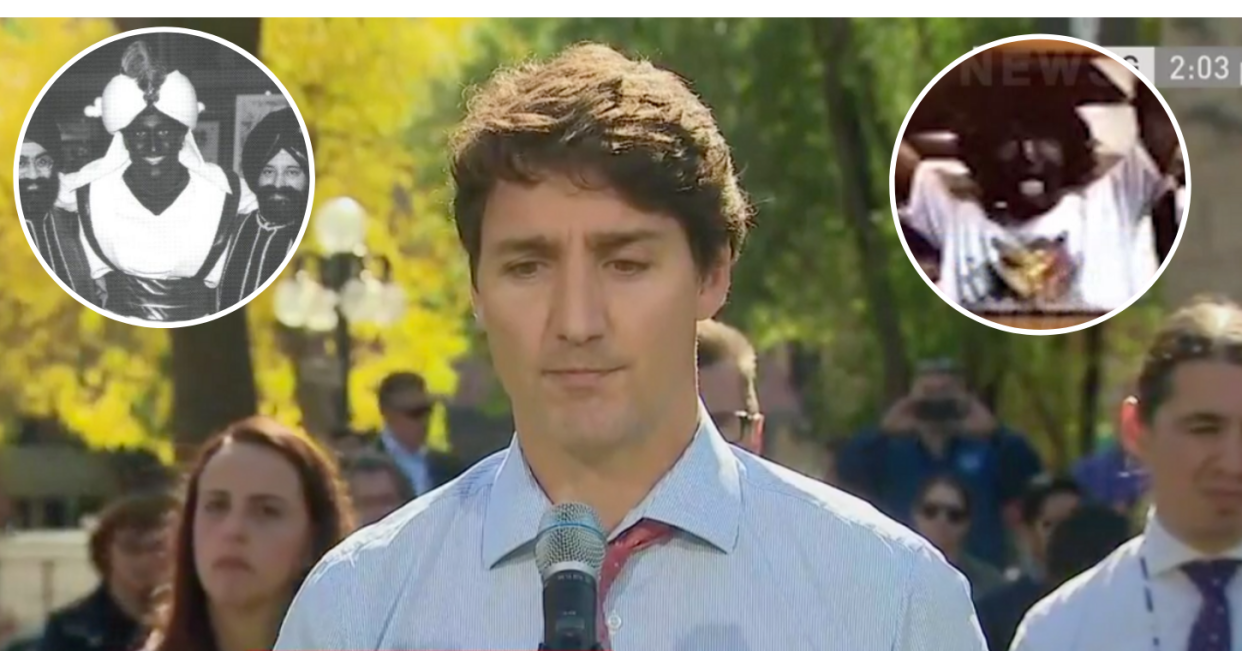Trudeau didn't intend to do a racist act: but does intent matter?

This week, the country had to navigate challenging but much-needed conversations about racism after several images of Prime Minister Justin Trudeau in black and brownface surfaced.
Many Canadians are left feeling perplexed by the shocking photos and video of the country’s leader, blatantly engaging in the kind of behaviour he’s spent his career campaigning against. And while Trudeau has issued an apology, ascribing his actions to ignorance, it’s forced Canadians to take a closer look at the many facets of racism.
Rima Wilkes is a professor in the department of sociology at the University of British Columbia. She says the difference between intended racism, versus indirect racism through ignorance is comparable to the different degrees of murder charges.
“Whether you intended to kill someone or it was manslaughter doesn’t change the affect,” she tells Yahoo Canada. “Whether you intend (a racist act) to be hurtful or not doesn’t make it any less hurtful. If Trudeau didn’t intend it, it’s still hurtful. He can apologize, but it’s still hurtful. Those feelings will still last.”
Sonia Kang, an associate professor at the University of Toronto’s department of management, has studied the perceived intentionality of racial discrimination. She says Trudeau has shown growth in the language that he uses to confront his embarrassing past.
“When this first came out, he was talking about it like ‘oh I wore makeup, I was wearing a costume,’” she says. “Since then, he’s obviously been more informed and understands what this act is and now he’s calling it what it is, which is blackface.”
She adds that the abundance of blackface scandals involving politicians and actors that have surfaced in recent years has helped start a conversation about its historical context and why it’s not acceptable.
“If this came out and it was a picture from June, (Trudeau would) be done,” Kang adds.
Racism isn’t limited to actions as it can also be ingrained in culture, which can also be challenging to change. A good example of that is the Dutch character of Black Peter. He is an eyebrow-raising companion to the Netherland’s version of Santa, who appears in blackface. During Christmas parades in the Netherlands, white people will paint their faces black to resemble the character. This year, organizers are attempting the curb the tradition, by telling revellers to apply makeup as if it were soot, and not black skin.
“Just because something is built into a cultural traditional, doesn’t mean it shouldn’t change,” says Kang. “Once it enters into the public consciousness that this is something people want to change, you’ll see it less and less as generations go forward.”
While the images of Trudeau are hard to process for many, Wilkes warns that completely dismissing someone’s past racist behaviour after they express remorse can be detrimental to society. By “cancelling” an actor or politician who’s apologized for old tweets that are deemed racist, we aren’t allowing them evolve.
“Imagine if your whole life is defined by something you did,” she says. “That’s not a model to move forward and that’s what’s happening with all these politicians. We’re saying ‘if you’ve done this ever, this is who you are and you cannot change’ and I don’t believe that’s true.


